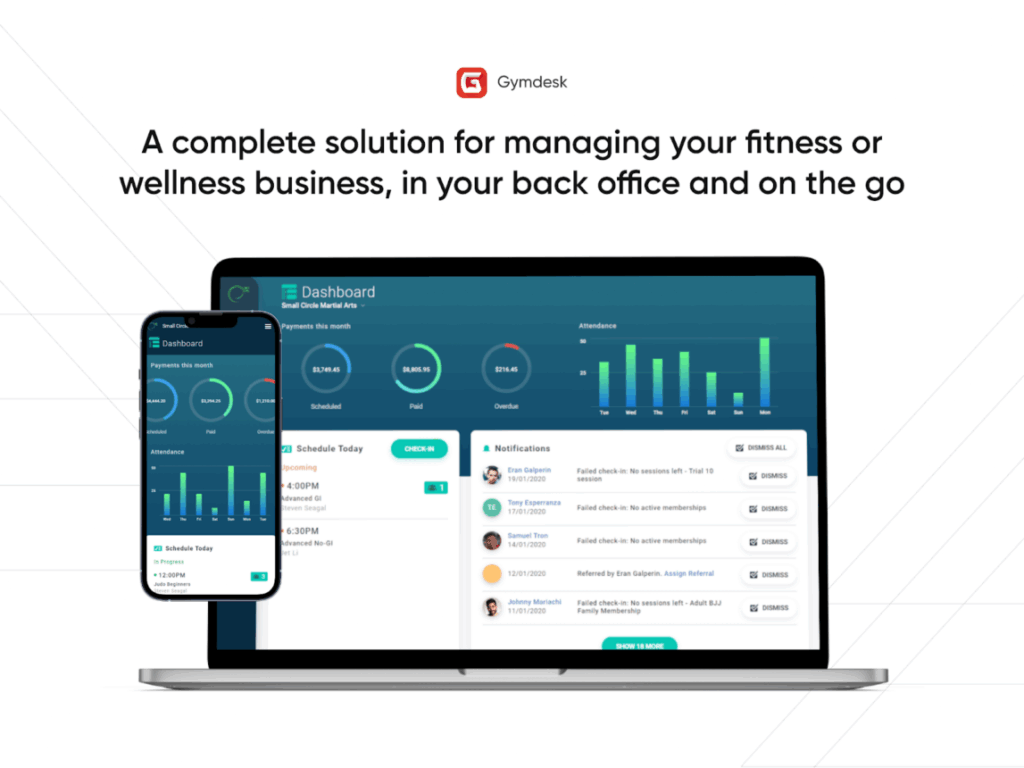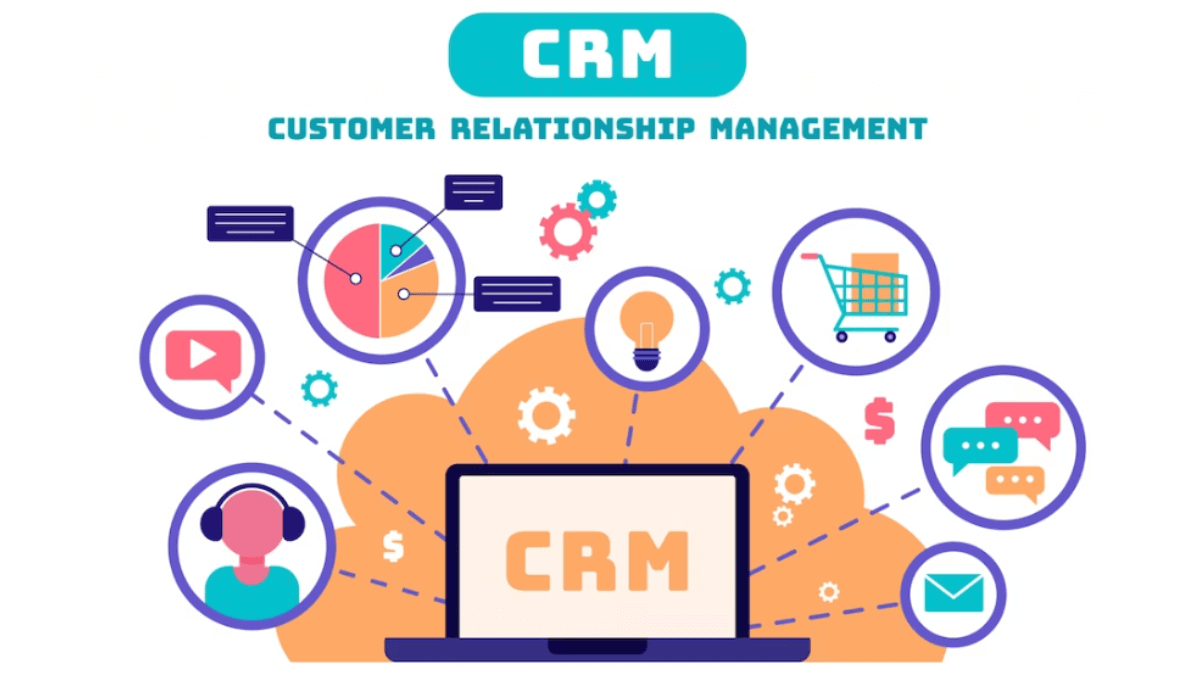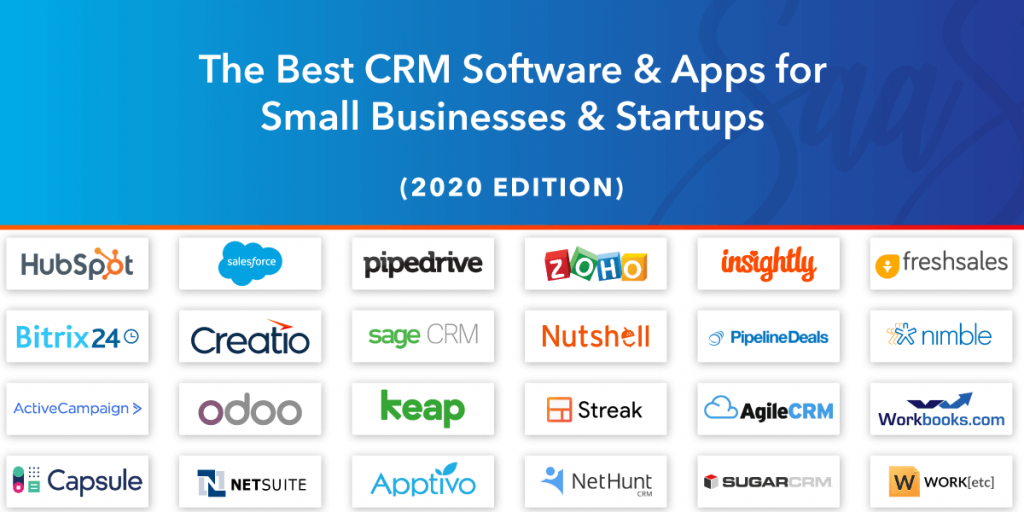Level Up Your Fitness Business: The Best CRMs for Small Fitness Trainers in 2024

Level Up Your Fitness Business: The Best CRMs for Small Fitness Trainers in 2024
So, you’re a fitness trainer. Awesome! You’re passionate about helping people achieve their health and fitness goals. You’re likely juggling client schedules, workout plans, nutrition advice, and maybe even some social media marketing. Sound familiar? If you’re feeling overwhelmed, you’re not alone. The good news is, there’s a game-changer that can help you streamline your business and free up your time: a Customer Relationship Management (CRM) system.
This article is your ultimate guide to the best CRMs specifically designed for small fitness trainers. We’ll dive deep into what a CRM is, why you absolutely need one, and then explore the top contenders in the market. We’ll analyze their features, pricing, pros, and cons, so you can make an informed decision and find the perfect fit for your unique needs. Get ready to ditch the spreadsheets and embrace a more organized, efficient, and ultimately, more successful fitness business!
What is a CRM and Why Do Fitness Trainers Need One?
Let’s start with the basics. CRM stands for Customer Relationship Management. At its core, a CRM is a software solution that helps you manage your interactions with current and potential clients. Think of it as your central hub for all things client-related. It’s where you store contact information, track communication, schedule appointments, manage payments, and much more.
Why is a CRM so crucial for fitness trainers? Here’s the deal:
- Organization is Key: Juggling multiple clients, their schedules, progress, and payments can be a nightmare without a proper system. A CRM keeps everything organized in one place, preventing information from getting lost in the shuffle.
- Improved Client Relationships: A CRM allows you to personalize your interactions with clients. You can track their goals, preferences, and progress, allowing you to tailor your services and build stronger relationships.
- Time Savings: Imagine spending less time on administrative tasks and more time focusing on what you love – training! A CRM automates many repetitive tasks, such as appointment scheduling, payment reminders, and follow-up emails.
- Increased Efficiency: With all your client information readily available, you can respond to inquiries faster, create personalized workout plans more efficiently, and track client progress with ease.
- Better Lead Management: CRMs can help you capture and nurture leads, turning potential clients into paying customers. You can track where your leads come from, what their interests are, and how you’re engaging with them.
- Data-Driven Decisions: A CRM provides valuable insights into your business, such as which marketing efforts are most effective, which services are most popular, and client retention rates. This data helps you make informed decisions to grow your business.
In short, a CRM is an investment in your business’s future. It’s about working smarter, not harder, and creating a more enjoyable and profitable experience for both you and your clients.
Key Features to Look for in a CRM for Fitness Trainers
Not all CRMs are created equal. When choosing a CRM for your fitness business, consider these essential features:
- Contact Management: This is the foundation of any CRM. It should allow you to store detailed contact information, including names, contact details, notes, and custom fields to track specific client information (e.g., fitness goals, medical history, allergies).
- Appointment Scheduling: An integrated scheduling tool simplifies the booking process for both you and your clients. Look for features like online booking, automated reminders, and calendar synchronization.
- Client Communication: The ability to easily communicate with clients is crucial. This includes email, SMS, and potentially even in-app messaging. You should be able to send bulk emails, personalized messages, and automated follow-ups.
- Payment Processing: Integrated payment processing streamlines your billing process. Look for features like online payment gateways, recurring billing, and automated invoicing.
- Progress Tracking: Tracking client progress is essential for demonstrating value and motivating clients. A good CRM should allow you to track things like body measurements, weight, workout performance, and progress towards goals.
- Workout Planning: Some CRMs offer features for creating and managing workout plans. This can include exercise libraries, the ability to create custom workouts, and the ability to share plans with clients.
- Reporting and Analytics: Data is your friend! A CRM should provide reports and analytics on key metrics, such as client acquisition cost, client retention rate, and revenue per client.
- Integration with Other Tools: Consider which other tools you use, such as email marketing platforms, social media platforms, or accounting software. The CRM should integrate seamlessly with these tools to streamline your workflow.
- Mobile Accessibility: You’re often on the go, so a mobile-friendly CRM is a must-have. This allows you to access client information, manage appointments, and communicate with clients from anywhere.
- User-Friendliness: The CRM should be intuitive and easy to use. If it’s too complex, you won’t use it, and you won’t reap the benefits.
Top CRM Systems for Small Fitness Trainers: A Deep Dive
Now, let’s explore some of the best CRM options for small fitness trainers. We’ll look at their features, pricing, pros, and cons to help you find the perfect fit.
1. Trainerize
Overview: Trainerize is a popular choice specifically designed for fitness professionals. It’s packed with features tailored to the needs of trainers, making it a powerful all-in-one solution.
Key Features:
- Workout & Nutrition Planning: Trainerize excels at creating and delivering workout plans and nutrition programs. It includes an extensive exercise library, the ability to create custom workouts, and integration with MyFitnessPal.
- Client Communication: Offers in-app messaging, allowing for direct communication with clients, sharing progress updates, and providing support.
- Appointment Scheduling: Integrated scheduling features for booking and managing appointments.
- Progress Tracking: Comprehensive progress tracking tools, including body measurements, photos, workout performance, and habit tracking.
- Payment Processing: Integrated payment processing for secure and streamlined billing.
- Branding: Allows for customization with your branding, creating a professional and cohesive client experience.
Pricing: Trainerize offers various pricing plans, typically based on the number of clients you manage. They have a free trial, and plans range from affordable starter options to more comprehensive plans for growing businesses.
Pros:
- Fitness-Specific Focus: Built specifically for fitness professionals, meaning the features are highly relevant.
- Excellent Workout & Nutrition Planning Tools: Robust tools for creating and delivering personalized programs.
- Strong Client Engagement Features: In-app messaging and progress tracking foster client engagement.
- Branding Capabilities: Allows you to build a professional brand.
Cons:
- Can be Feature-Rich: The abundance of features can feel overwhelming for beginners.
- Pricing Can Increase: Pricing scales with the number of clients, which can become expensive as your business grows.
Ideal for: Fitness trainers who want a comprehensive, all-in-one solution with a strong focus on workout and nutrition planning and client engagement.
2. TrueCoach
Overview: TrueCoach is a platform designed to simplify online coaching. It focuses on communication, program delivery, and progress tracking.
Key Features:
- Program Delivery: Allows you to easily create and deliver workout programs to your clients.
- Client Communication: Robust communication features, including messaging, video uploads, and progress feedback.
- Progress Tracking: Tracks client progress with metrics, photos, and workout performance.
- Integration with Other Tools: Integrates with other apps like MyFitnessPal, allowing for seamless data sharing.
Pricing: TrueCoach offers various pricing tiers based on the number of clients you have. They often provide a free trial to get you started.
Pros:
- Focus on Communication: Excellent communication tools for building strong client relationships.
- User-Friendly Interface: Easy to learn and navigate.
- Good Program Delivery Tools: Simplifying the creation and delivery of programs.
Cons:
- Fewer Features than Trainerize: Lacks some of the more advanced features, such as integrated payment processing.
- Less Branding Options: Limited branding options compared to some competitors.
Ideal for: Online fitness coaches who prioritize client communication and program delivery and want an easy-to-use platform.
3. Practice Better
Overview: Practice Better is a versatile platform that caters to a wider range of health and wellness professionals, including fitness trainers. It offers a more comprehensive suite of features than some of the more fitness-specific solutions.
Key Features:
- Client Portal: Provides a client portal for accessing programs, schedules, and resources.
- Appointment Scheduling: Robust scheduling tools with online booking and automated reminders.
- Billing and Invoicing: Integrated billing and invoicing features for streamlined payment processing.
- Client Communication: Offers secure messaging and email communication.
- Forms and Documents: Allows you to create and share forms and documents with clients.
- Nutrition Tracking: Integrates with nutrition tracking apps.
Pricing: Practice Better offers different pricing tiers based on the features you need and the number of clients you manage. They often provide a free trial.
Pros:
- Comprehensive Features: Offers a wide range of features, including scheduling, billing, and client management.
- Client Portal: Provides a professional client experience.
- Versatile: Suitable for a variety of health and wellness professionals.
Cons:
- Less Fitness-Specific Focus: May not have as many fitness-specific features as Trainerize or TrueCoach.
- Can be More Complex: The wide range of features can be overwhelming for beginners.
Ideal for: Fitness trainers who want a comprehensive platform that includes scheduling, billing, and client management and are looking for a solution suitable for a broader health and wellness practice.
4. Acuity Scheduling (Squarespace Scheduling)
Overview: Acuity Scheduling, now Squarespace Scheduling, is a popular scheduling tool that can be used by fitness trainers. It’s a great option if you primarily need a scheduling solution and don’t require the more advanced features of a full-fledged CRM.
Key Features:
- Appointment Scheduling: Streamlined scheduling with online booking, automated reminders, and calendar synchronization.
- Payment Processing: Integrated payment processing for accepting online payments.
- Customization: Allows you to customize your booking pages and branding.
- Client Communication: Automated email and SMS reminders.
- Integrations: Integrates with other tools like Zoom and email marketing platforms.
Pricing: Squarespace Scheduling offers various pricing tiers based on the features you need. They have affordable options for small businesses.
Pros:
- User-Friendly: Easy to set up and use.
- Affordable: More affordable than some of the more feature-rich CRMs.
- Excellent Scheduling Features: Strong scheduling capabilities.
Cons:
- Limited CRM Features: Lacks some of the core CRM features, such as progress tracking and workout planning.
- Not as Fitness-Specific: Not tailored specifically to fitness trainers.
Ideal for: Fitness trainers who primarily need a reliable scheduling tool with online booking and payment processing.
5. HoneyBook
Overview: HoneyBook is a client management platform designed for creative small businesses, including fitness trainers. It focuses on managing the client journey from inquiry to invoice.
Key Features:
- Lead Capture: Captures leads through contact forms and automations.
- Project Management: Manages projects with tasks, deadlines, and progress tracking.
- Contracts and Invoices: Creates and manages contracts and invoices.
- Client Communication: Centralizes communication in one place.
- Payment Processing: Integrated payment processing for seamless transactions.
Pricing: HoneyBook offers various pricing plans based on features and usage. They often have promotional offers for new users.
Pros:
- Streamlined Client Journey: Helps you manage the entire client lifecycle.
- Professional Templates: Offers customizable templates for contracts, invoices, and proposals.
- Good Client Communication Tools: Centralizes all your client communication.
Cons:
- Not Fitness-Specific: Not designed specifically for fitness trainers, so some features may not be relevant.
- Less Focus on Workout Planning: Lacks advanced workout planning and progress tracking features.
Ideal for: Fitness trainers who want a platform to manage the entire client journey from lead capture to invoicing, and who are looking for a more general client management solution.
Choosing the Right CRM: A Step-by-Step Guide
So, how do you choose the perfect CRM for your fitness business? Here’s a step-by-step guide:
- Assess Your Needs: What are your biggest pain points? What tasks do you spend the most time on? What features are most important to you? Consider your current workflows and what you want to improve.
- Define Your Budget: How much are you willing to spend on a CRM? Consider both the monthly fees and any potential setup costs.
- Research Your Options: Explore the CRM options we’ve discussed above, as well as other options that might be a good fit. Read reviews and compare features.
- Prioritize Features: Based on your needs assessment, prioritize the features that are most important to you. Make a list of must-have features and nice-to-have features.
- Try Free Trials: Most CRM providers offer free trials. Take advantage of these trials to test out the software and see if it’s a good fit for your needs.
- Consider Integrations: Does the CRM integrate with the other tools you use, such as email marketing platforms or social media platforms?
- Evaluate User-Friendliness: Is the CRM easy to use? Is the interface intuitive? If it’s too complex, you’re less likely to use it.
- Read Reviews: Read reviews from other fitness trainers to get an idea of their experiences with the CRM.
- Make a Decision: Based on your research and testing, choose the CRM that best meets your needs and budget.
- Implement and Train: Once you’ve chosen a CRM, implement it and train yourself and your team on how to use it effectively.
Tips for Successfully Implementing a CRM
Choosing the right CRM is only half the battle. Here are some tips for successfully implementing a CRM in your fitness business:
- Plan Your Implementation: Before you start, create a plan for how you will implement the CRM. This includes defining your goals, setting up your workflows, and migrating your data.
- Clean Up Your Data: Make sure your client data is accurate and up-to-date before importing it into the CRM.
- Customize the CRM: Tailor the CRM to your specific needs. Customize the fields, workflows, and templates to match your business processes.
- Train Your Team: If you have a team, train them on how to use the CRM effectively. Provide them with the necessary resources and support.
- Use the CRM Consistently: Make using the CRM a habit. Encourage your team to use it for all client interactions.
- Monitor Your Progress: Track your progress and make adjustments as needed. Regularly review your CRM data to identify areas for improvement.
- Seek Support: Don’t hesitate to reach out to the CRM provider’s support team if you have any questions or issues.
The Benefits of a Well-Implemented CRM
The benefits of a well-implemented CRM are numerous and can significantly impact your fitness business. Here are some of the key advantages:
- Increased Client Retention: By providing personalized service and tracking client progress, you can build stronger relationships and increase client retention rates.
- Improved Client Acquisition: A CRM can help you capture and nurture leads, turning them into paying clients.
- Enhanced Efficiency: Automating tasks and streamlining your workflows can save you time and allow you to focus on what you do best – training.
- Increased Revenue: By improving client retention, acquiring new clients, and increasing efficiency, you can increase your revenue.
- Better Decision-Making: Data-driven insights can help you make informed decisions to grow your business.
- Professionalism and Consistency: A CRM helps you deliver a consistent and professional experience to your clients.
- Scalability: A CRM allows you to scale your business more easily as you grow.
Final Thoughts: Investing in Your Success
Choosing the right CRM is an investment in the future of your fitness business. It’s about creating a more organized, efficient, and client-focused operation. While the initial setup might take some time, the long-term benefits of a well-implemented CRM are undeniable.
Take the time to research your options, assess your needs, and choose the CRM that’s the perfect fit for your business. By doing so, you’ll be well on your way to building a thriving and successful fitness business that helps you and your clients achieve their goals.
So, what are you waiting for? Start your research today and take the first step toward streamlining your business and taking your fitness career to the next level!




